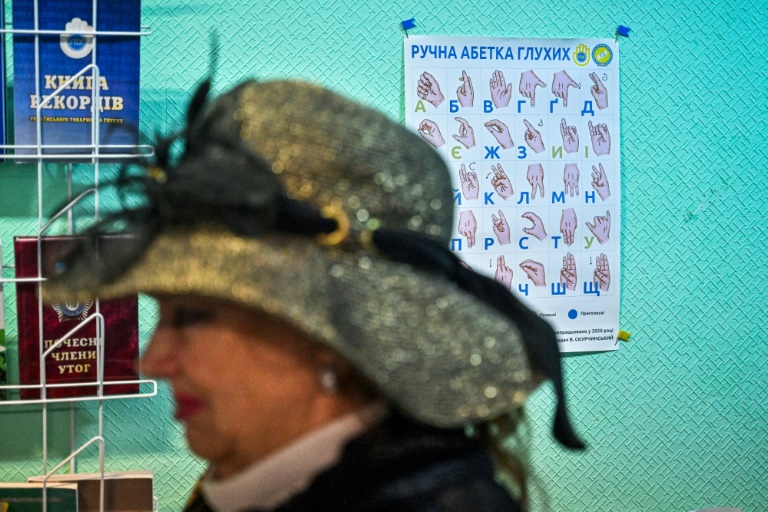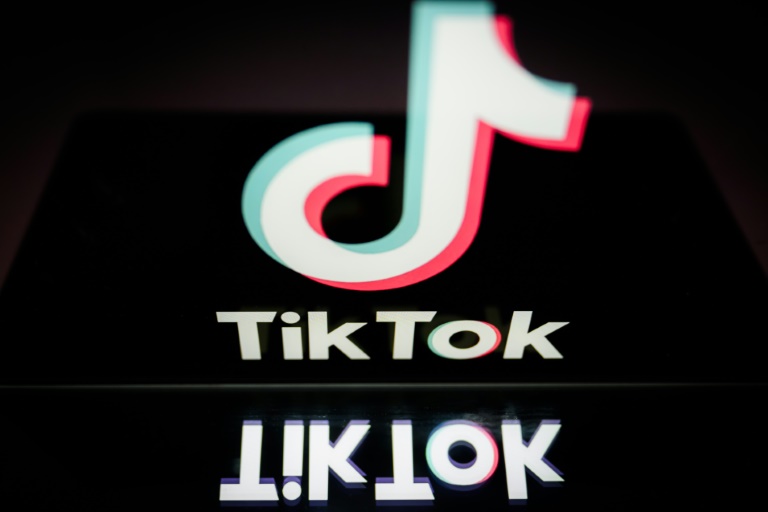It took a second for Andrii Yeger, a deaf Ukrainian, to realise that the waves of energy he felt were coming from a Russian rocket landing near his car.
“It all slowed down inside of me… I felt a vibration in my whole body,” Yeger told AFP.
“I saw people and smoke, I took my phone, read the news and that’s when I understood there was an explosion,” the 61-year-old said.
The deaf community in Ukraine has been facing many challenges during the war, including inaudible air siren alerts, which an organisation hopes to solve with smart watches.
Yeger is a volunteer at the Ukrainian Society for the Deaf (UTOG), which has helped many through war’s added hardships.
“The main issue was the access to information for hearing-impaired people. At the beginning of the war, there was almost nothing for them,” UTOG’s interim president Tetyana Kornyenko told AFP.
Kornyenko said residents evacuating from the southern Kherson and the eastern Donetsk and Lugansk regions near the frontline told the organisation they had struggled at checkpoints.
“It was very scary, they could not hear (the orders),” Kornyenko said.
Once at the railway stations, “train numbers and platforms were given via loudspeakers, which they couldn’t hear,” she added.
Kyiv and its region counted around 4,000 deaf residents before the war, according to UTOG.
Around 700 to 1,000 remain.
– Vital device –
Those still in the country are made vulnerable to shelling because they cannot hear air sirens alerted over loudspeakers or on phone applications.
Olena Mentchenko, 80, said people help her take cover when sirens resonate.
“I stayed in a shelter for three days, with nothing to eat, I was hungry,” Mentchenko told AFP.
“But there were people who could hear in the shelter, they helped me and gave me food.”
The Ukrainian Society for the Deaf created channels on the messaging platform Telegram to inform people of air raid alerts.
It has started translating video statements from officials into sign language, and advocates for the use of technology from smartphones to wearable devices to warn of upcoming strikes and rescue victims.
In January, a smart watch saved a young woman’s life after a Russian missile strike on a residential block in Dnipro, which killed 45 people.
Deaf people cannot hear rescuers coming, so they cannot shout to guide them, UTOG’s interim president explained.
The 27-year-old woman was “pulled out from the rubble after she used her smart watch to tell her mother she was alive,” Kornyenko said.
Since then, the organisation — which does not have the means to provide watches itself — has been asking the government to help improve access to the life-saving devices.
The watches can cost up to a few hundred dollars and remain a luxury item in a country at war.
Yeger has gotten used to feeling missile strikes rather than hearing them.
Still, he is wearing the watch he got for his birthday “just in case, after what happened in Dnipro.”

 Business4 months ago
Business4 months ago
 Business4 months ago
Business4 months ago
 Events6 months ago
Events6 months ago
 People4 months ago
People4 months ago
 Events3 months ago
Events3 months ago
















